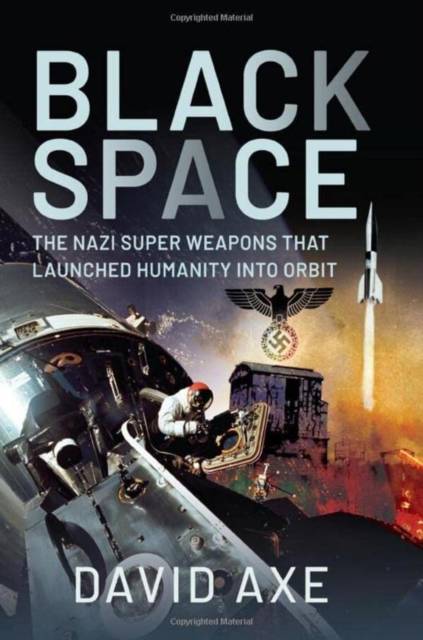
- Afhalen na 1 uur in een winkel met voorraad
- Gratis thuislevering in België vanaf € 30
- Ruim aanbod met 7 miljoen producten
- Afhalen na 1 uur in een winkel met voorraad
- Gratis thuislevering in België vanaf € 30
- Ruim aanbod met 7 miljoen producten
Zoeken
€ 34,95
+ 69 punten
Omschrijving
Features space-based superweapons and their architects, along with the high-stakes politics that reined them in.
Orbital fortresses poised to fry entire cities with no warning using giant mirrors. Bombers that take off from Earth, punch through the thin border between the atmosphere and vacuum and take advantage of that lofty altitude to speed across the globe on missions of mass destruction.
These and other exotic orbital weapons were under consideration, or even active development, in the early decades of humanity's push into space.
And no wonder. The era of frantic, dueling, American and Soviet space-exploration efforts -- which stretched from the end of World War II to the United States' successful Moon landing in July 1969 -- had its roots in Nazi Germany, a country that pinned its hope for global conquest on equally ambitious superweapons.
In the decades following World War II, the top scientists in the U.S. and Soviet space programs were ex-Nazis--most notably rocket-designer Wernher von Braun, who sided with the Americans. The basic technologies of the space race derived from Nazi superweapons, in particular von Braun's V-2 rocket.
But orbital war never broke out in those heady decades of intense space competition. It's possible to triangulate the moment the seemingly inevitable became evitable. July 29, 1958. The day U.S. president Dwight Eisenhower reluctantly signed the law creating the National Aeronautics and Space Administration.
Starting that day, the U.S. military gradually ceded to NASA, a civilian agency, leadership of American efforts in space. Even von Braun, once a leading advocate of orbital warfare, went along. Space-based superweapons and their architects, and the high-stakes politics that reined them in, are the subject of this brief book.
Orbital fortresses poised to fry entire cities with no warning using giant mirrors. Bombers that take off from Earth, punch through the thin border between the atmosphere and vacuum and take advantage of that lofty altitude to speed across the globe on missions of mass destruction.
These and other exotic orbital weapons were under consideration, or even active development, in the early decades of humanity's push into space.
And no wonder. The era of frantic, dueling, American and Soviet space-exploration efforts -- which stretched from the end of World War II to the United States' successful Moon landing in July 1969 -- had its roots in Nazi Germany, a country that pinned its hope for global conquest on equally ambitious superweapons.
In the decades following World War II, the top scientists in the U.S. and Soviet space programs were ex-Nazis--most notably rocket-designer Wernher von Braun, who sided with the Americans. The basic technologies of the space race derived from Nazi superweapons, in particular von Braun's V-2 rocket.
But orbital war never broke out in those heady decades of intense space competition. It's possible to triangulate the moment the seemingly inevitable became evitable. July 29, 1958. The day U.S. president Dwight Eisenhower reluctantly signed the law creating the National Aeronautics and Space Administration.
Starting that day, the U.S. military gradually ceded to NASA, a civilian agency, leadership of American efforts in space. Even von Braun, once a leading advocate of orbital warfare, went along. Space-based superweapons and their architects, and the high-stakes politics that reined them in, are the subject of this brief book.
Specificaties
Betrokkenen
- Auteur(s):
- Uitgeverij:
Inhoud
- Aantal bladzijden:
- 216
- Taal:
- Engels
Eigenschappen
- Productcode (EAN):
- 9781399014236
- Verschijningsdatum:
- 7/03/2023
- Uitvoering:
- Hardcover
- Formaat:
- Genaaid
- Afmetingen:
- 156 mm x 236 mm
- Gewicht:
- 1419 g

Alleen bij Standaard Boekhandel
+ 69 punten op je klantenkaart van Standaard Boekhandel
Beoordelingen
We publiceren alleen reviews die voldoen aan de voorwaarden voor reviews. Bekijk onze voorwaarden voor reviews.











